6th November 2023
Listen
Listen
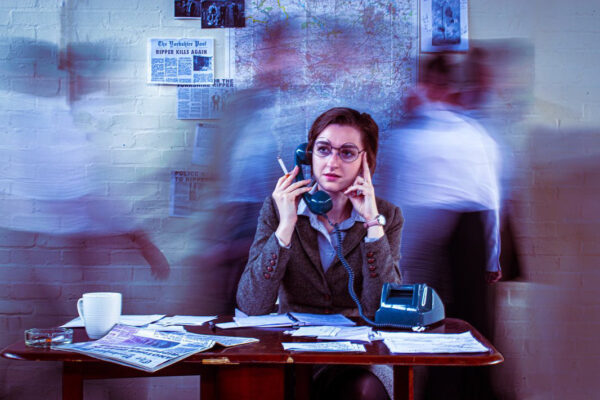
The case – which involved the tragic murders of 13 women by the serial killer Peter Sutcliffe between 1975 and 1980 – has a legitimate claim to being one of the most notorious in British, if not world, history. It forms the focus of a four-part 2020 Netflix series, a 2021 true crime podcast – even a 2021 heavy metal track by American band Slipknot.
So, is there really more to be said on the subject? Liverpool-based theatre company Old Fruit Jar Productions certainly think so. At the beginning of June, they will stage The Incident Room, a play set behind the scenes of the case, concentrating not on the perpetrator but on the police investigation which (spoiler alert!) led to his eventual capture in 1981. As LGSM Arts and Culture editor, I sat down (virtually) with the cast to talk about everything from manhunt mishandling to handlebar moustaches, as they explained why their play is “massively timeless”.
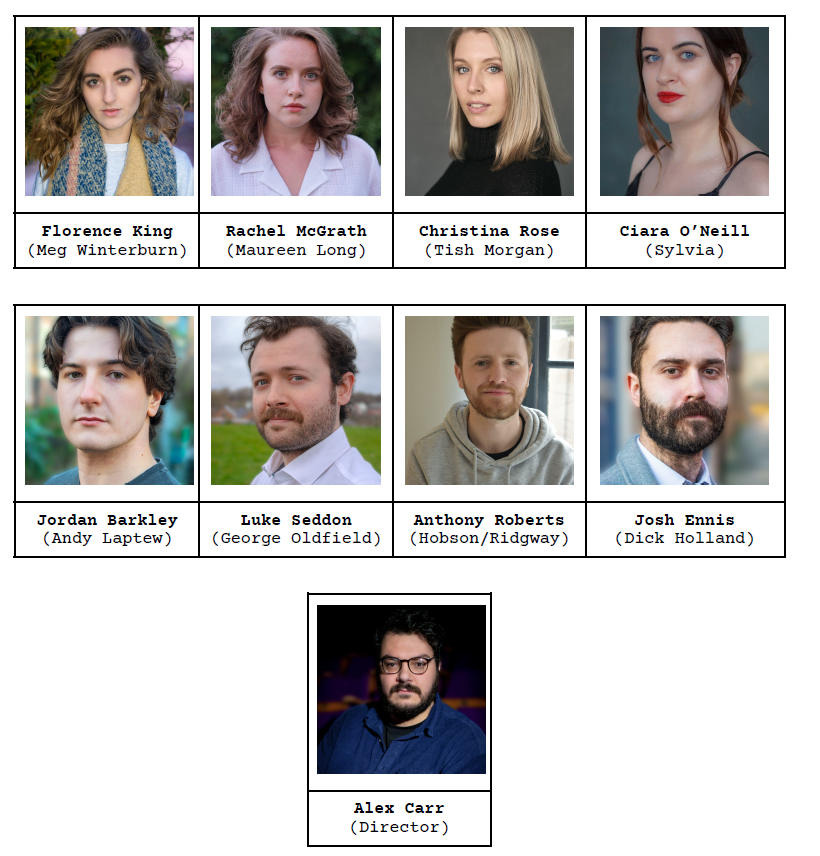
Alex Carr [director]: The Incident Room is a meticulously researched piece of theatre. It’s set in the Millgarth incident room in 1970s Leeds, the base of operations as the police are frantically searching for one man: the Yorkshire Ripper. They are at their wits’ end as the play begins. Five women have been murdered, and they are no closer to catching the killer than they were after the first attack.
Jordan Barkley [actor]: What sets this play apart from a lot of other media is that the story focuses solely upon the police manhunt. It is a detective drama before it is a sensationalisation of true crime.
AC: Calling it The Incident Room rather than say, The Yorkshire Ripper Murders I think relates to the timeless nature of the piece. It also incites a little intrigue about it. And of course, it’s entirely set in the police incident room. A dirty, dank, horrible police station in 1970s Leeds. It’s office desks and phones ringing and just chaos for [the] 6 years [that the play spans]!
JB: Absolutely the events that occur in this piece are relevant decades later! The malpractice within the incident room along with the inherent misogyny rampant within the police force rings true of current events. The more we have rehearsed this play, the more we as a cast have felt that society has never really left the twentieth century…
Ciara O’Neill [actor]: Definitely from a female perspective this story is crucial to understanding our history, that we still have a long way to go for change. Not only the inherent sexism in the police force which in recent years has been so devastating to see, but also power struggles in the wider world. It’s quite poignant for so many reasons, which will all hopefully become clear when you sit down and watch.
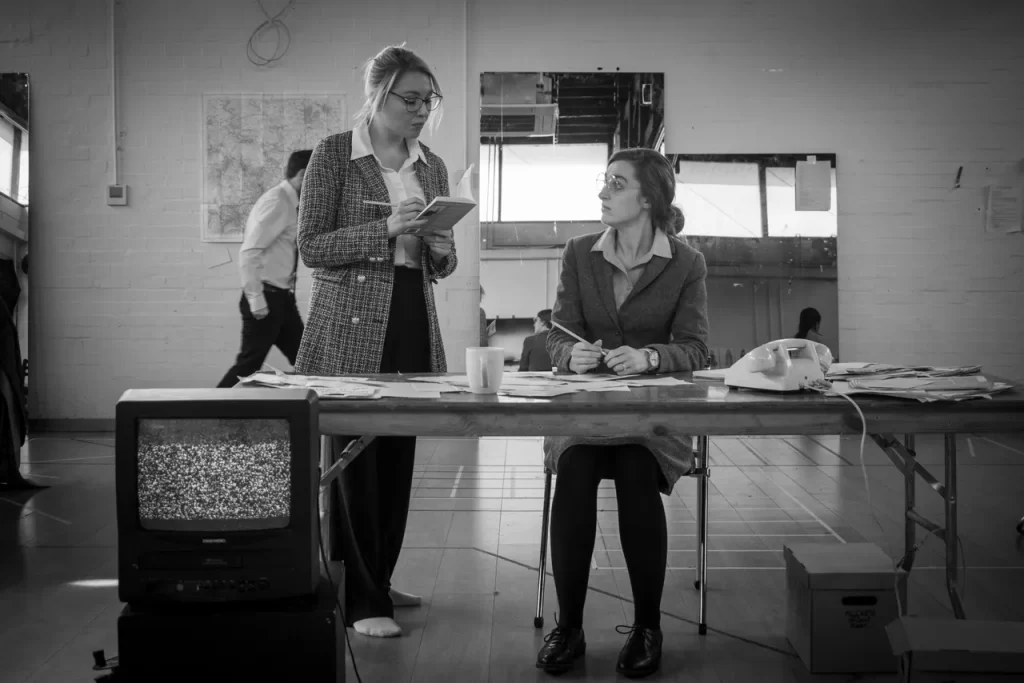
Christina Rose [actor]: I’m playing Tish Morgan, who’s a reporter, and actually the only character in the play who is not based on a real person. [Instead] she represents the press, the media and everyone who is following the story of the hunt for the Yorkshire Ripper. Journalist characters always get a bad rep but I really like her. She’s switched on, she’s determined, she’s passionate about her career.
Florence King [actor]: I play Meg Winterburn, the only leading female detective on the case and historically the first female detective inspector in the West Yorkshire police after the Yorkshire Ripper Case concluded. [In the play] Meg is battling with institutionalised sexism to try and get the job she deserves, but she isn’t afraid to stand up to her boss, George Oldfield, and at times questions his decisions.
AC: Another integral part of the story is Maureen Long, the first recognised survivor of the Yorkshire Ripper. She was attacked while the incident room was operating and our play brings the realism that anyone is at risk here. She also represents all the other victims: both those who survived and those who were tragically murdered.
Rachel McGrath [actor]: Playing one of the victims of the Yorkshire Ripper has been quite an intense process. The lengths that the police put Maureen through to try to catch her attacker were unbelievable. It’s been harrowing, but interesting to undertake all of the research needed to represent Maureen and the survivors respectfully.
JB: I usually find myself endlessly sifting through the script looking for clues in each and every scene, highlighting themes and character relationships. Once I can build up a pin board in my mind for the piece, the character comes right off the page!
Josh Ennis [actor]: Inspiration for my character came from watching various interviews with the real-life person, picking up small mannerisms here and there. Shows like Life on Mars and Happy Valley also helped for the aesthetic of the time and environment in which this piece takes place.
AC: I’m drawing a lot from Seventies cinema, where everything is quite dark and gritty. Even though these characters are real people, we’ve still got those tropes you’d see in films: handlebar moustaches and big sideburns. Everything is brown. Boring and beige, like the Seventies were! I think we’ve really perfectly captured the era.
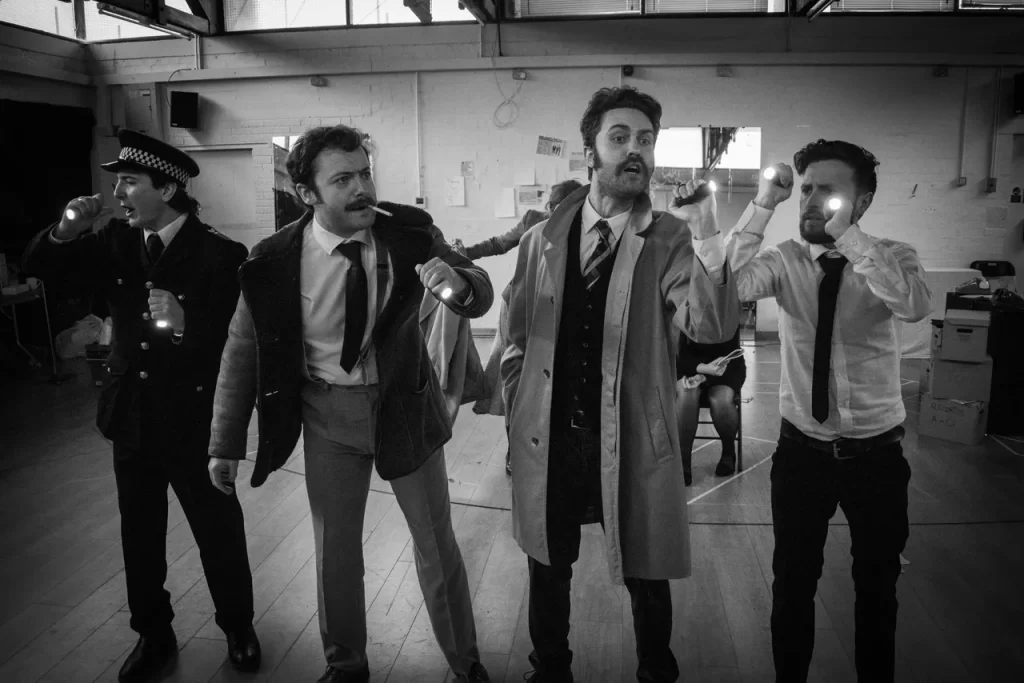
Luke Seddon [actor]: I think people are just fascinated by our [shared] human history. I heard a BBC podcast which was two Americans discussing the Yorkshire Ripper case, and that was mind-boggling. [Clearly] there is a certain level of universality that can be recognised by anyone, anywhere. I think the appeal is being able to recognise things in your own life that bear similarities to events like these, and that’s what draws people in.
JE: I think we as a species enjoy the exploration of things that frighten, shock or unnerve us, and true crime as a genre allows us to explore that side of our psyche from a safe distance. The Incident Room is no exception. It allows the audience to essentially be a ‘fly on the wall’ as to what it would have been like working in that crammed, paper-ridden office space with large egos constantly at odds with each other. There may be moments of workplace levity between characters, but we really don’t wish to shy away from the gravity of events that took place. The task gets to each and every character in different ways, and we want to show that weight on everyone’s shoulders as honestly as possible.
AC: We’re hoping that some people in the audience might not know anything about the Yorkshire Ripper case, but that they can identify themes [similar to] what they’ve experienced in their own lives.
FK: I love the scenes that flash forward in time, which are quite powerful because they use hindsight as the main driver, and [show] how dangerous that can be. I think that we can all relate to the notion of ‘what if I had just done this…’ after something significant.
AC: Overall, we’re telling this story to incite a change. If we’ve changed even one person’s mind, then we’ve done our job as storytellers.
LS: [My character] George delivers a line at quite a heated moment: ‘You don’t take this case home like I do’. It’s a great reminder to me and the rest of the brilliant team that if we’re to do this show and the victims of this terrible incident justice then we must take it home with us. We must be constantly thinking about this production. The research and detail we’ve found… it’s tough to switch off from that. It’s been eye-opening.
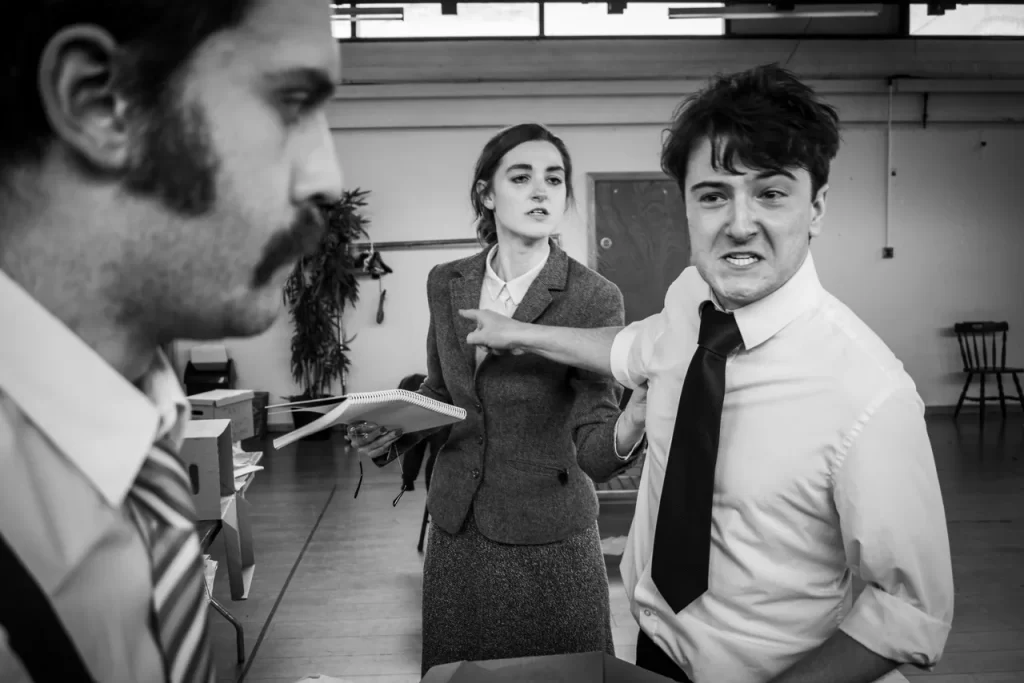
CR: At the beginning of rehearsals we were told we needed to know the case inside out. It would be insensitive otherwise.
Anthony Roberts [actor]: It’s really important to us that we not only tell this story as truthfully as we can (and the writers have done a great job in getting it all together) but that we also challenge people’s beliefs. Alex said to us from day one that we need to challenge perspectives and beliefs because that’s what theatre is there for.
AC: Our play doesn’t go into the gory details of the attacks or murders. It may be a heavy night of theatre, yes – but in the end, it’s eye-opening and hopeful for change.
AC: We’ve got things in the pipeline, yes! Hopefully, some more adaptations of well-known Shakespeare plays. [This following a successful run of an Eighties-inspired Twelfth Night at Liverpool’s Royal Court Theatre last summer.] We’re trying to do some original short films as well. This might not be the last you see of Old Fruit Jar Productions in 2023.
The Incident Room premieres on 1 June 2023 at the Black E, 1 Great George Street, Liverpool. Tickets are priced at £12 (£9 concessions) and can be purchased from www.ticketsource.co.uk/ofjproductions. Discover more about Old Fruit Jar Productions at oldfruitjarproductions.co.uk, on Instagram @oldfruitjarproductions and on Twitter @ofj_productions.
Featured image credit: Old Fruit Jar Productions